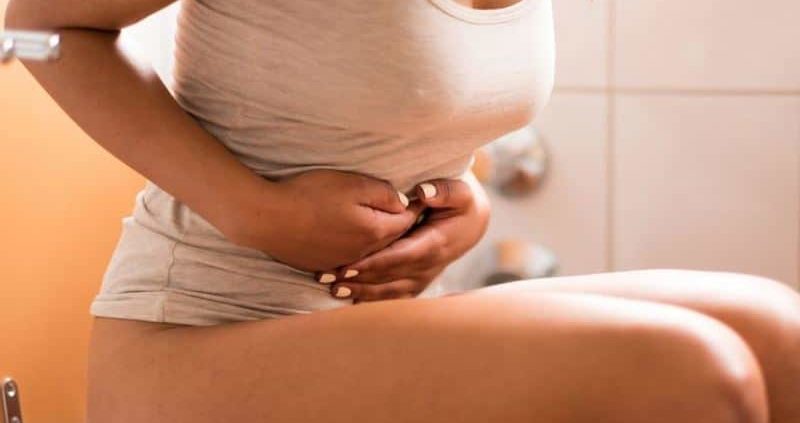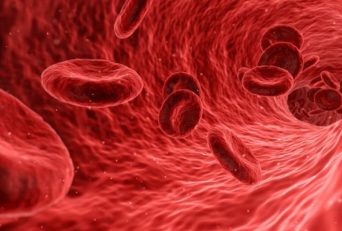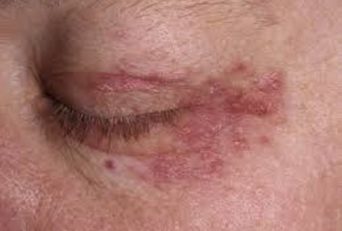Tortuous Colon is a medical condition in which the colon is more twisted or tortuous than usual. This is a result of the large intestine being more extensive than usual which requires the colon to be more twisted to fit itself in its allocated place.
Due to the large size of the colon, this condition is also known as the redundant colon. It may lead to a lot of discomfort and frequent indigestion problems due to obstructed intestinal tract.
Table of Contents
What Is Tortuous Colon?
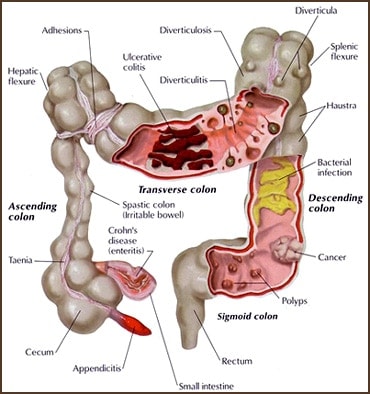
Colon is a long hollow tube which is an essential digestive organ. It is about 5 feet long and is most commonly referred to as the large intestine. Its function is to absorb the water and fluids from the waste created by the small intestine and solidify it to form feces which is then eliminated by the anus.
Tortuous colon is a condition in which the large intestine is longer than normal which forces the colon to be intertwined and more twisted so that it can fit in the designated place.
Because of this, the patient experiences difficulty in passing feces and hence suffers from gastrointestinal issues like chronic constipation, pain, and inflammation. It also leads to many other complications such as hemorrhoids.
What Are The Causes Of Tortuous or Redundant Colon?
As pointed above, a tortuous colon is a condition which is caused due to the size o the large intestine being longer than usual, leading to an abnormally looped colon. There can be many reasons for this condition. Some people are born with it, and some others develop it later in their life due to improper lifestyle. The most common causes for tortuous colon are:
1. Genetic Factors
Some people are more prone to having redundant colon due to their genetics. If a family member suffers from this condition, then it is more likely that their children would be born with a tortuous colon.
2. Dietary Habits
People with improper dietary habits are prone to suffering from the tortuous colon. Eating processed foods and a diet lacking enough fiber is likely to be the cause hard stool and constipation. This obstructs the passage of the intestine, strains it and causes its length to increase. Also, drinking insufficient water is a potential cause for this condition.
3. Disease
Chronic irritable bowel syndrome (IBS) may also be a causative factor for this condition.
4. Constipation
Constipation is a prevalent cause of tortuous colon. People suffering from constipation frequently experience strain and pressure in their intestines due to difficult passage of hardened stool. This causes the colon to elongate with time and eventually lead to the extreme twisting and coiling to accommodate itself in the designated space.
Tortuous Colon and Constipation
There is a very close relationship between tortuous colon and constipation. This is because constipation can be both, a cause and a symptom of the condition of the tortuous colon.
People who suffer from frequent episodes of constipation are very likely to develop redundant colon as a lot of pressure is exerted, and there is extreme difficulty in passing the fecal matter through the colon.
On the other hand, people who are born with the tortuous colon are vulnerable to encountering constipation frequently. This is because of the colon is so strenuous to pass for the hardened stool.
Additionally, constipation being the only primary symptom of this condition, the patients can live symptom-free if they by fix the problem of constipation by following a proper diet plan and drinking lots of water.
Symptoms Of Tortuous Colon
Usually, the tortuous colon is a symptomless medical condition. It has no particular signs in most healthy patients. However, some others experience gastrointestinal issues resulting from the reduced bowel movement due to an obstructed passageway.
Here are the symptoms that may be indicative of redundant colon:
a. Constipation
Chronic constipation is the most prominent symptom of the redundant colon. Insufficient fiber, water, and liquids in the diet cause the stools to be hard. This causes added obstruction for the smooth movement of feces in the intestinal tract. Hence, people with tortuous colon experience great difficulty in passing feces.
b. Pain and cramps
The added pressure on the intestinal walls because of constipation and hard stools causes immense pain and cramps in the abdominal region.
c. Bloating
Bloating is caused due to irregular bowel movement and the inability of the feces to pass smoothly. The accumulated toxins are responsible for creating swelling and bloating.
d. Acne and skin rashes
The slowed bowel movement and resulting accumulation of toxins cause impurity in the blood. This can cause acne or skin rashes.
e. Blood and mucus secretion
Due to the blockage in the intestinal tract and constipation, there is often blood and mucus secretion along with the feces.
f. Irregular motions
Due to the hard stool and reduced bowel movement, motions are highly irregular and most of the times extremely painful.
If the symptoms are left untreated, constipation may lead to further complications such as hemorrhoids, anal fissures or rectal prolapse. If the flow of stool is slowed or stops altogether, it may require an emergency surgery.
How Is Tortuous Colon Diagnosed?
Tortuous Colon and colonoscopy
Tortuous colon can be diagnosed by the signs and symptoms mentioned above, which can be further confirmed by a procedure called colonoscopy. However, if it is symptomless, it can be diagnosed only by colonoscopy. The process involves the insertion of an instrument called a colonoscope into the rectum of the affected person through the anus.
The colonoscope is a long tube with a camera attached to it. As the tube is pushed through the length of the colon, the gastroenterologist looks around for any abnormalities in the region. If the colon is abnormally twisted, it can be detected by the doctor at this stage. It is highly effective in a tortuous colon with extreme twisting and looping. Sometimes it can also be detected by X-ray tests.
When To Seek Medical Help?
Many people live with a tortuous colon for years without any symptoms by following a proper diet and sufficient intake of water.
However, if you experience gastrointestinal conditions and chronic constipation, pain, etc. despite following proper remedies, you might require medical help.
So, here are the signs that mean you need to see your doctor immediately:
- Extreme pain in the stomach or abdomen
- Not having a bowel movement for three straight days
- Brown, stool-like vomiting
How To Get Rid Of Tortuous Colon
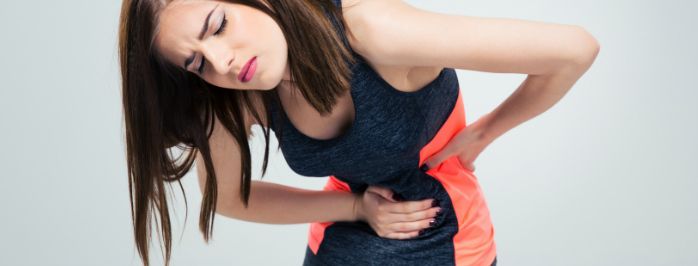
The purpose of treatment or remedies is just to get symptomatic relief as it is not a severe health hazard. Hence, many remedies and dietary solutions are available to get rid of the symptoms and discomfort that comes with the twisted colon.
Mostly, home remedies resolve the issues without requiring any medical assistance. Only in cases of severe blockage or any other complexity does the need for medical intervention arise. Here are the treatment options available for redundant colon:
1.Diet
Diet is the easiest way to get rid of the symptoms of the redundant colon. Remember, making dietary changes is the most efficient way to make the condition symptomless even if you have an extreme case of a twisted colon.
It is important that people suffering from this condition increase their daily intake of fiber and cut down the consumption of processed foods.
Fiber helps a lot in digestion and improving bowel movement. It would smoothen the passage of feces in the intestinal tract which will decrease the risk of constipation.
2.Fiber-rich foods to include:
Fiber is very essential for the process of digestion as it draws fluids from the body to add bulk to the stool. Here are some very basic foods you can include in your diet that is readily available on the market and is easy to incorporate.
- Coconut : Total Dietary Fiber: 7.2 grams per cup
- Green Peas: Total Dietary Fiber: 8.6 grams per cooked cup; majority insoluble fiber
- Nuts : Almonds Total Dietary Fiber: 0.6 grams of fiber per 6 almondsWalnut Total Dietary Fiber: 1.9 grams of fiber per 1 ounce by weight
- Flax seeds : Total Dietary Fiber: 3 grams of fiber per tablespoon of whole flax seeds
- Chia seeds : Total Dietary Fiber: 5.5 grams per tablespoon
It is important to note that while increasing your daily intake of dietary fiber it is essential to start slowly and increase gradually. Next, drink a lot of water to smoothen your hard stools which will make it easier to eliminate the wastes from the body and exert less strain on the colon.
Home Remedies To Get Rid Of Tortuous Colon
- Castor oil is an excellent remedy to improve the bowel movement. It helps a lot in cases of constipation.
- Drinking lukewarm water with lemon and honey every morning goes a long way in flushing the toxins from the body along with increasing the movement of stool out of the body.
- Fruits and vegetables that contain a lot of fiber are immensely helpful in cases of constipation.
- A natural bulk-forming laxative called Isphagula is very useful to clear the bowel.
Medication
In cases where dietary changes and home remedies don’t help in reduction of symptoms, there are some medications available in the pharmacies which provide relief to the patients of a tortuous colon. It is essential that you do not take these medications without consulting a doctor before.
The usual medications include stool softener medicines or stimulant laxatives. Some over the counter (OTC) laxative synthetic products include Metamucil, Citrucel, Milk of Magnesia and Colace.
Tortuous Colon Surgery
Severe cases of the tortuous colon may require immediate surgery if constipation takes a more dangerous form.
Final Talk
Tortuous colon is a non-hazardous and mostly non-symptomatic medical condition which is characterized y an abnormally large size of the colon which causes it to be extremely twisted and tortuous.
It causes many gastrointestinal problems if left untreated or treated lightly. It is usually resolved by some simple dietary changes or home remedies. Medical help is required only in cases of severe constipation or extreme pain.
In short, it is nothing to worry about if you are diagnosed with the tortuous colon. Only make sure that you maintain a sufficient intake of fibrous foods and water, and you will never experience any major inconvenience or discomfort.
Reference:
1.WebMD

